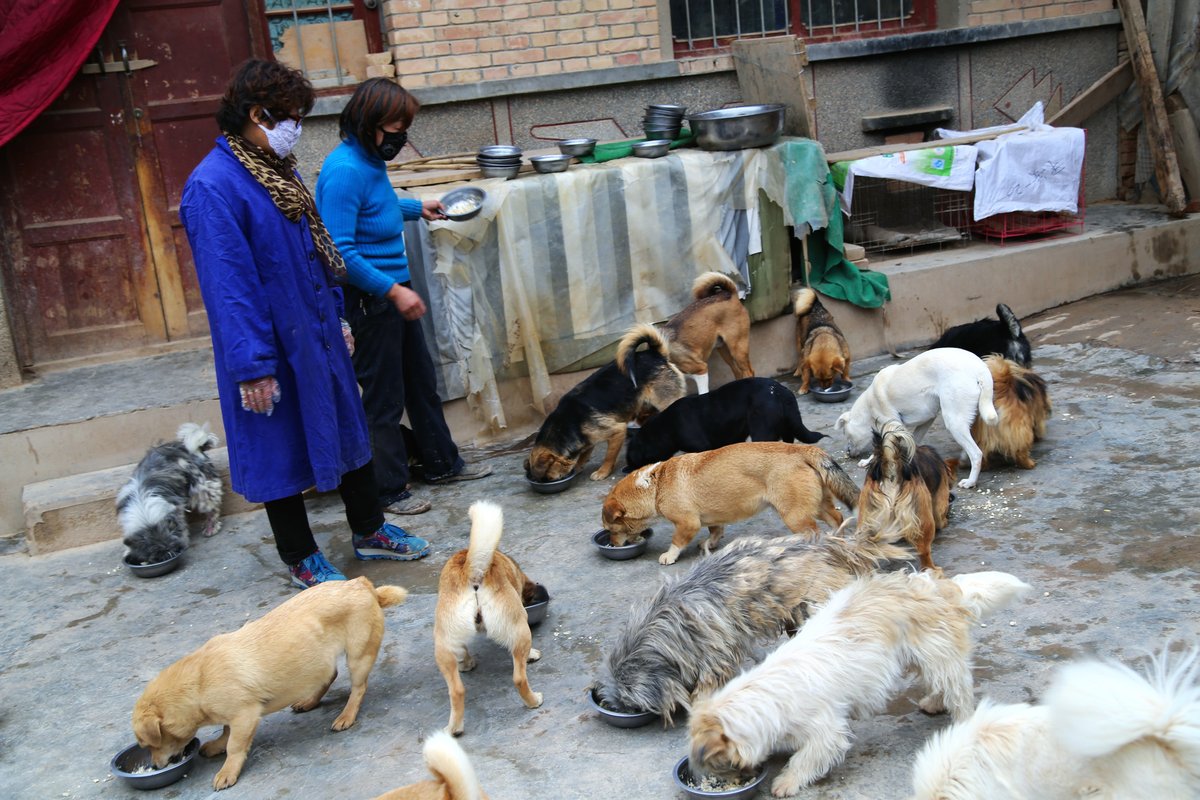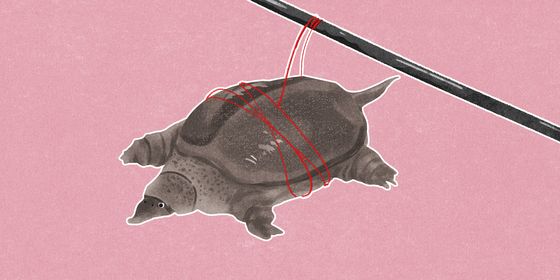China’s pet owners fear for their dogs after a rottweiler attack sparks a nationwide backlash
When the streets were empty, in the quiet darkness of the evening, online art teacher Fu Lin and her three-year-old giant poodle Eva were typically at their happiest. Eva would run about, and Fu would enjoy her dog’s freedom vicariously. But their daily escape from the confines of their apartment in Linfen, Shanxi province, has become more cautious of late, as pet lovers across China face discontent toward dogs and their owners.
The upsurge in animosity toward canines and their companions was triggered by reports of an untethered black rottweiler attacking a two-year-old girl in Chongzhou, Sichuan province, earlier in the year. The girl was injured badly, suffering broken ribs, before her mother finally drove the dog away with the help of a cleaner and another resident in their community. On June 17, the police announced that the girl had been treated and that the rottweiler’s owner was being investigated.
In response, authorities across China introduced measures aimed at “civilized dog keeping” which include the requirements that individuals and organizations must register their dogs and that dangerous dogs must be repossessed from individuals who are subsequently fined, while stray dogs are rounded up.
Some urban management departments posted videos or livestreamed their initiatives to capture untethered animals and street dogs on social media platforms, sparking a backlash amongst dog lovers who questioned whether those dogs were being treated ethically. In one extreme case at the Chongqing Institute of Foreign Trade and Economics, a university in southwestern China, a street dog died after being chased by a security guard (who was later dismissed). At the property management company of a residential community in Sichuan, a banner boldly claiming to capture and kill untethered dogs also provoked uproar online, informing debate between those who appeal for regulations to safeguard animal rights, and those wishing to see stricter regulations on dog ownership.
Over the last two decades, pet ownership has exploded across China. According to a report published by research firm Pethadoop, over 70 million people in China’s urban areas owned 65 million cats and 51 million dogs. Young Chinese, who are less keen to get married and have children than older generations, are driving the trend. They have even coined the term “with both cat and dog (猫狗双全)” to describe their “family status.”
Meanwhile, related injuries, and even deaths, have made headlines and dominated social media feeds. Incomplete statistics from the China Association for Disaster & Emergency Rescue Medicine show that around 40 million people reported being bitten by dogs and cats in the country in 2019.
In Shenzhen, Guangdong province, which is home to around 238,000 registered dogs, about 63,000 residents reported pet-related injuries between January and August of 2023, according to the Shenzhen Center for Disease Control and Prevention.
In many cases, including the recent Chongzhou incident, dogs that ended up hurting people were unleashed, their owners absent. “Owners should know their dogs, and how to control them, especially if the dog gets aggressive,” Fu tells TWOC.
Shen Ruihong, former secretary-general of NGOs Beijing Kennel Club and China Small Animal Protection Association, told Sanlian Lifeweek Magazine that he believes that such incidents were caused by “people” as well as “social administration.”
“The threshold for raising dogs is too low in our country. You can buy a dog online on [online shopping platform] Taobao and Douyin [China’s version of TikTok], and no one will check whether you register and vaccinate your dog, or teach you how to raise and train it.”
China’s Animal Epidemic Prevention Law, which was first implemented in 1998, stipulates that dog-raising organizations and individuals must vaccinate their dogs and register them with the local authorities. In 2021, a revision to the law mandated that dogs should wear their vaccination certification on their collar and be leashed at all times while outdoors. However, in practice, these rules are rarely enforced and compliance largely depends on the conduct of individual dog owners.
Regulations also vary from city to city. For instance, Beijing’s Regulations for Dog Raising, first implemented in 2003, mandates that organizations or individuals cannot keep dogs without getting a registration certificate, which must be renewed annually. Registration costs around 1,000 yuan for the first year, then 500 yuan for each renewal.
Meanwhile, Shenzhen’s Regulations on Dog Raising, which took effect in November 2020, only require owners to “voluntarily” register dogs older than three months, and renew the vaccination and certificate annually. Wu Ming, who lives in Shenzhen and asked to be identified by a pseudonym for this piece, tells TWOC that her dog named Thirteen—a Standard Schnauzer she adopted in 2019—has not been vaccinated for the last three years due to the pandemic. She thinks this is fine, since “Thirteen stays on the balcony most of the time, and is only amongst the public for a very brief period of the day,” which is usually “30 minutes after 10 or 11 p.m., when there are few people about.”
Many smaller cities don’t even require such registration. Fu and her dog-raising friends don’t have official licenses for their dogs in Linfen, although Fu says they all vaccinate their dogs regularly for the health of the animals. “I’ve checked with our community urban management and some local animal protection associations [about the rules], but only learned that the government is still working on its regulations,” Fu tells TWOC.
After the Chongzhou incident, the number of people coming to register their dogs jumped from two or three per day to around 40 per day, an employee at one dog registration service center in Nanning, in the Guangxi region, told Nanning Evening News on October 21.
In the WeChat group of Wu Ming’s local community, the residents have begun discussing dog raising. Some suggested that owners must apply for licenses for their dogs and attach their vaccination history and the owner’s phone number to the pet collar; others even went so far as to suggest the community should host only humans, not dogs.
Fu is particularly concerned for the safety of Eva and other dogs in the neighborhood due to stories of pet haters leaving poison food in public spaces, or even injecting toxic substances into packages of goods purchased online.
“I’m now especially cautious about any [suspicious] substances or even approaching passersby when I walk Eva outdoors,” Fu tells TWOC. For Fu, an ideal world where “people and animals live harmoniously” with improved regulations, more pet-friendly spaces, and fewer pet-human conflicts seems far away, given the zeitgeist. “Friends who have dogs remind each other to hold the leash tight and keep an eye on their pet,” she says of pervasive paranoia. “I’m even thinking of moving to the countryside,” she adds.
















